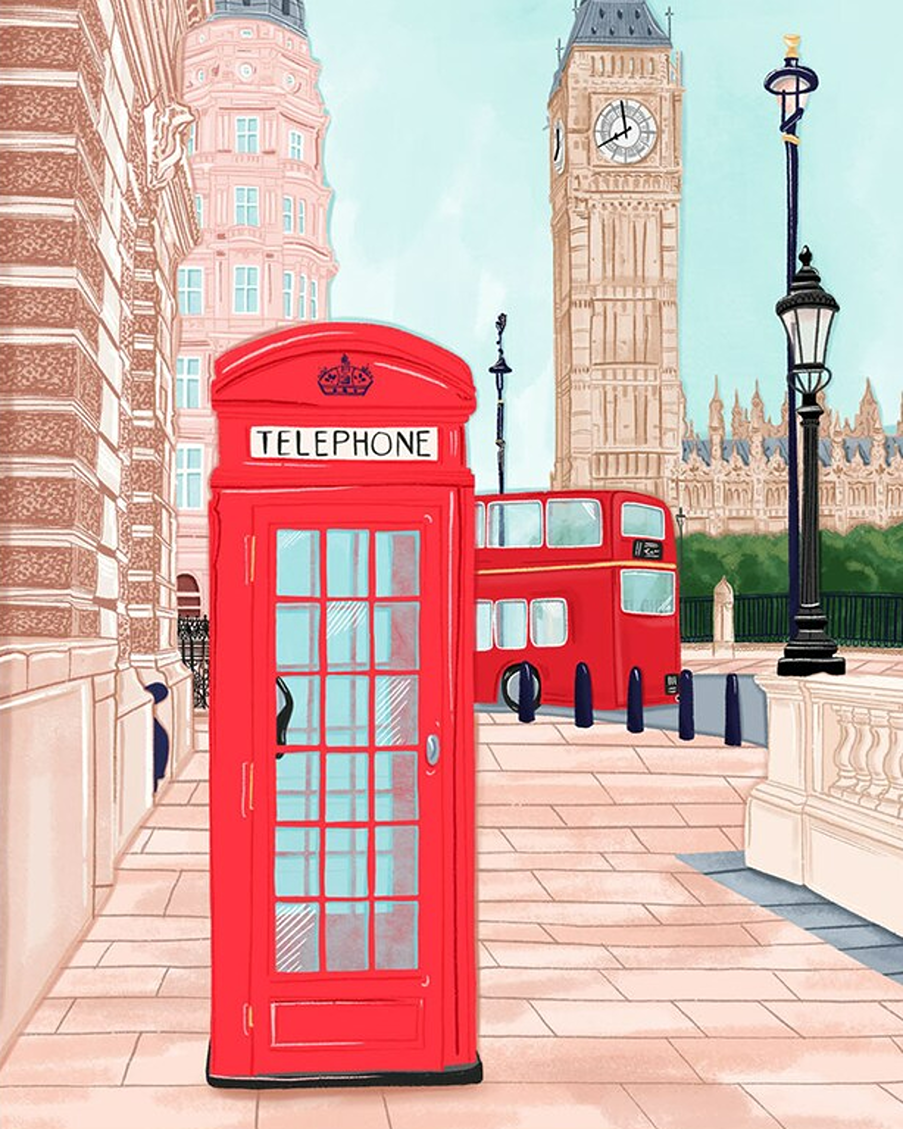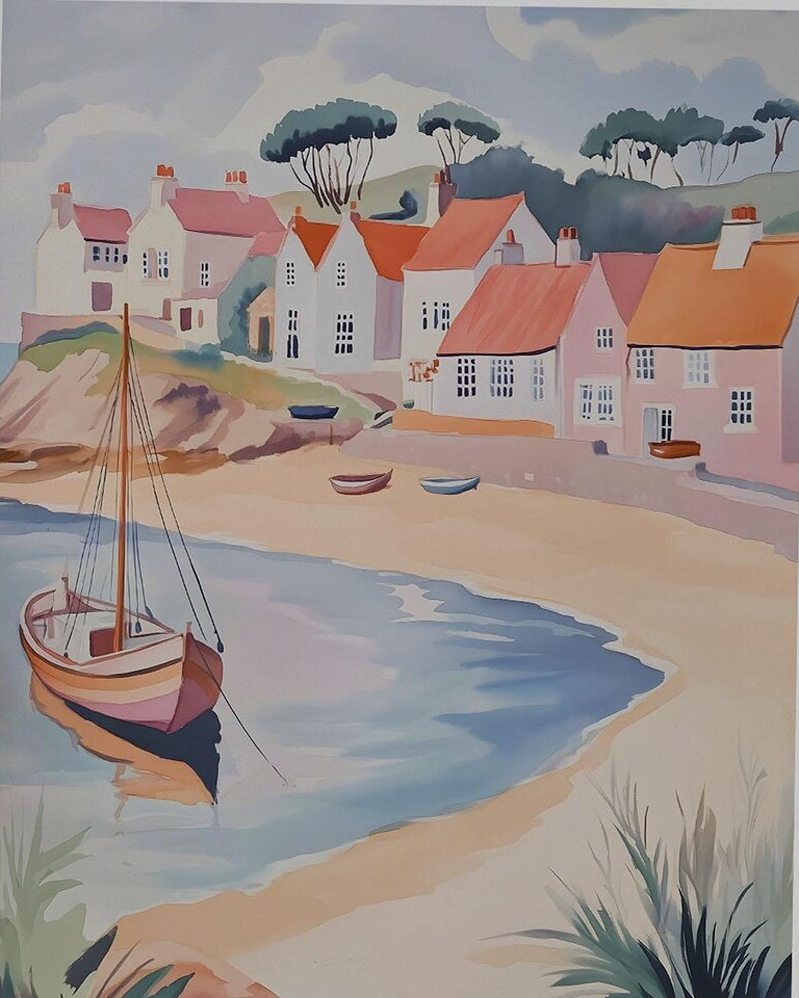A Guide to the County of Devon, Naturally
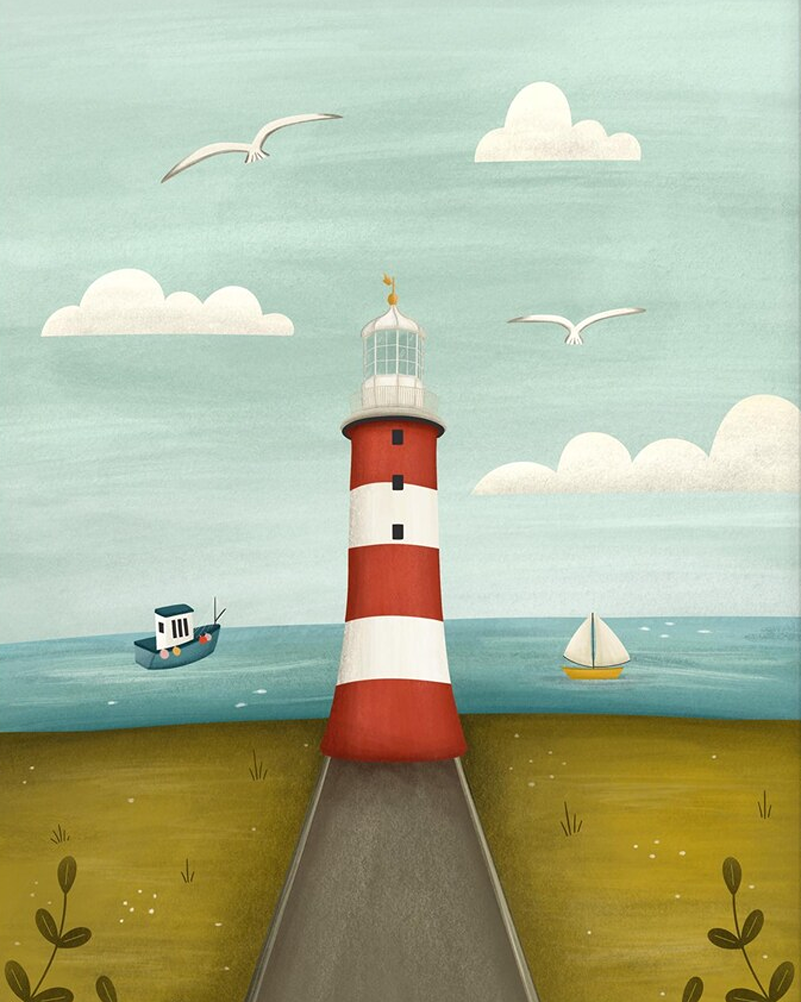
Devon is a large county in south west England. It’s home to two very different cities, south coast sailing resorts, a quieter North coast and an even quiet east coast that borders Dorset.
Here you’ll find Totnes (the world’s first transition town) and Tavistock (where the food was so good, McDonald’s had to close down)
If out walking, always follow the Countryside Code to keep all creatures safe. If at the coast, read about how to keep dogs safe by the seaside.
Two Very Different Cities
Plymouth is a maritime city that borders Cornwall via the Tamar Bridge, and has a large naval base this is where the pilgrim fathers set sail from on the Mayflower, hence there is a town of the same name in New England). Like Coventry, it was heavily bombed during World War II.
Smeaton’s Towner lighthouse was the second attempt (the first worn away by the sea on Eddystone Rocks), and built from Portland Stone (there are 93 steps for fantastic views).
Exeter is an inland historic city, with Roman roots and underground water passages, the cathedral has the world’s longest Gothic vaulted ceiling and England’s oldest civil building still in use. Writer Charles Dickens lived her for a good part of his life.
Parliament Street (England’s narrowest at just 25 inches) used to stink back in the day, when people would empty their chamber pots onto the pavement, leading the City Chamber locking the doors at each end!
South Devon Coast (sailing seaside resorts)

Devon’s south coast has a mild climate and is home to many popular resorts that are popular for sustainable sailors. These include:
Salcombe (one of England’s most expensive places to live) but holiday homes are left vacant for much of the year, leading local people unable to afford to buy property (like St Ives in Cornwall).
Hope Cove has two lovely beaches, and is less touristy (due to the windings roads, so it’s not as easy to get to).
Another popular sailing resort is Dartmouth, facing the water to Kingswear, home to pretty pastel houses and a steam train to Paignton.
Torquay on the English Riviera (the council pulled up the palm trees, leading to uproar) is now famed for being the setting for Fawlty Towers.
It was the birthplace of crime writer Agatha Christie, some believe the nearby thatched village of Cockington (she was a frequent visitor) was the inspiration behind the fictional village of St Mary Mead, where Miss Marple lived. Not far away is the fishing port of Brixton.
North Devon: A Mysterious and Quieter Coast
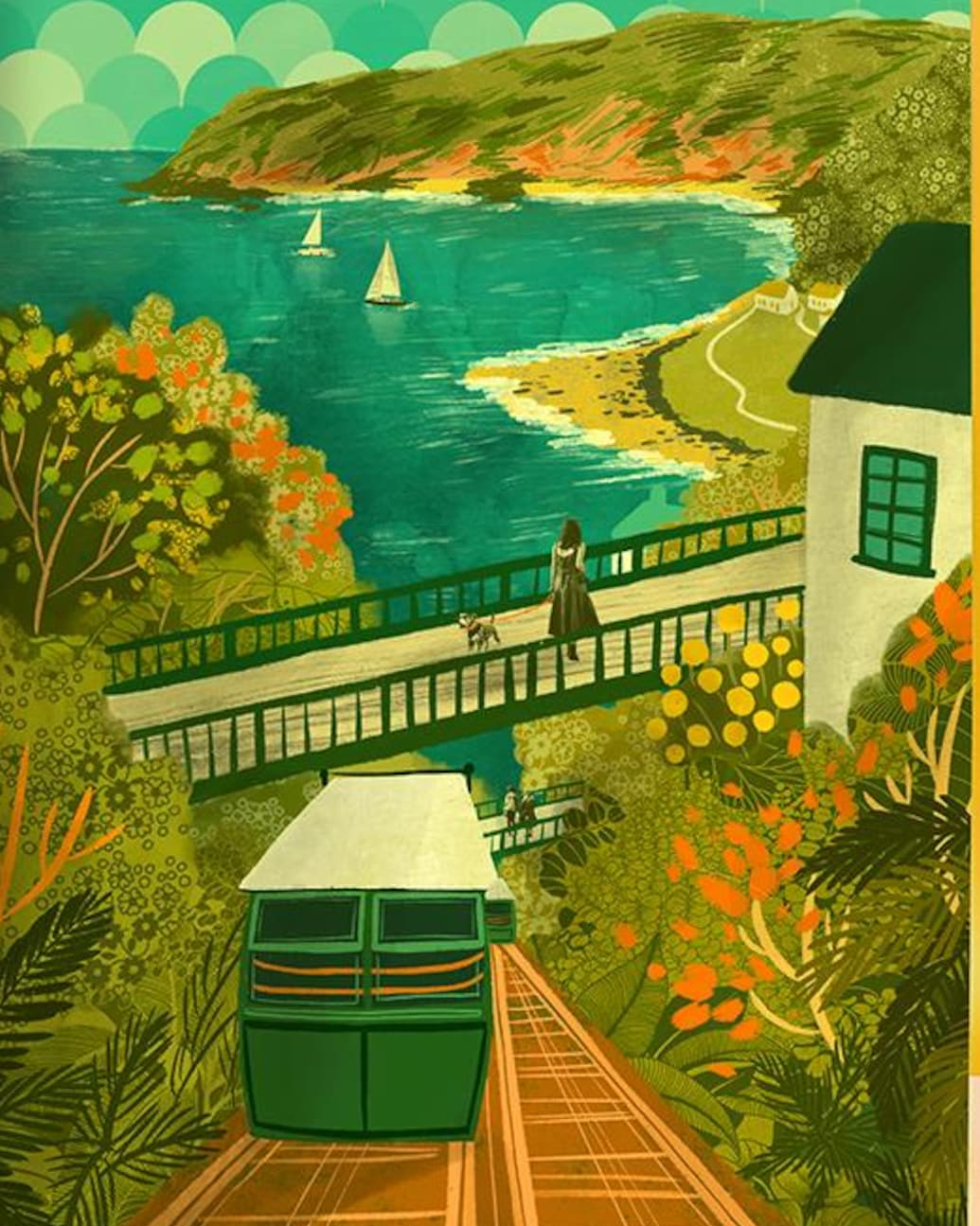
North Devon is far quieter, and includes the ‘Little Switzerland’ villages of Lynton and Lynmouth, home to one of England’s remaining funicular railways. Built in Victorian times, visitors can enjoy beautiful views of the harbour, Exmoor National Park and the Bristol Channel.
It also is home to Clovelly, one of England’s privately-owned villages.
Ilfracombe is a quiet seaside resort, with England’s oldest working lighthouse. Nearby is the medieval town of Barnstaple and Braunton Burrows (England’s biggest sand dunes).
Never walk on sand dunes, to protect nesting birds, seal pups and other wildlife. Also keep dogs away, especially in breeding season.
Exmouth (Devon’s Oldest Seaside Resort)
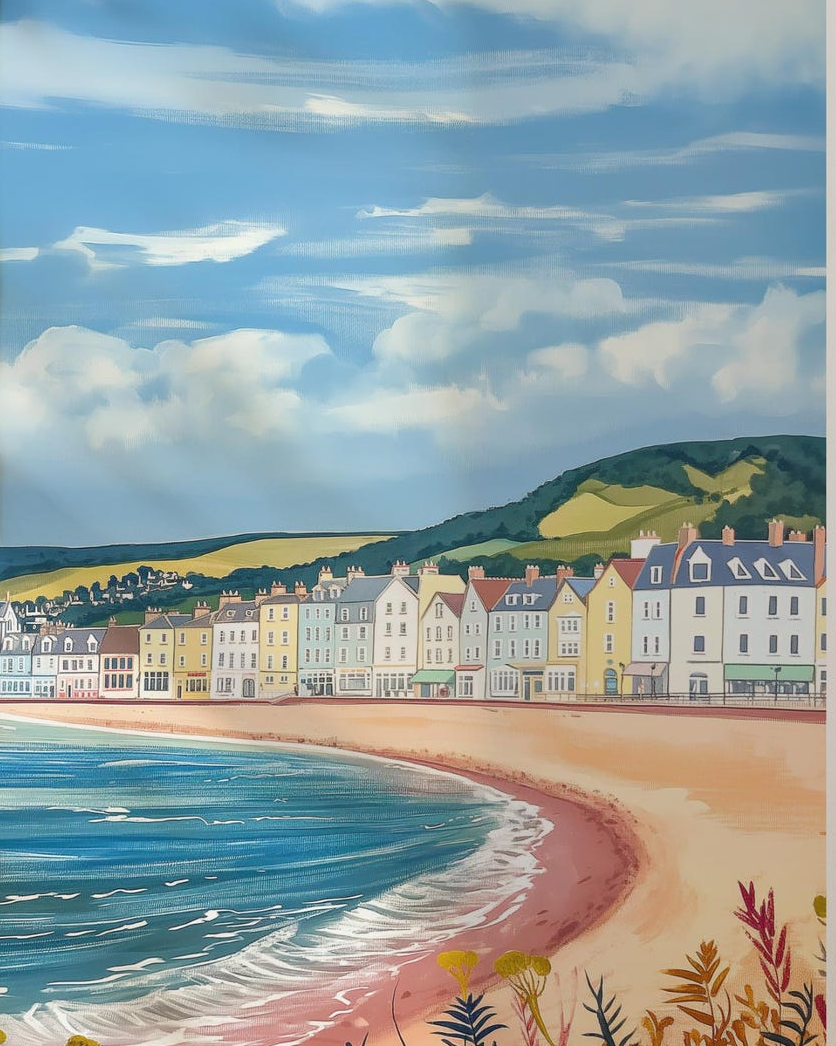
Travelling into East Devon, you’ll find Exmouth. Sitting on the River Exe estuary, it’s the starting point for the Jurassic Coast World Heritage Site, which extends into Dorset. Nearby there is an entire hamlet lost beneath the waves, due to coastal erosion.
Here you’ll find A La Ronde, a 16-sided house, built in the 18th century by two spinster cousins, who were inspired after a grand tour of Europe. Owned by the National Trust, the surrounding orchard is home to old Devon varieties of apple, plum and medlar trees.
It also has a hay meadow full of butterflies and crickets. And a ha-ha lawn (a type of sunken fence popular in 18th century gardens).
Exmouth is also one of the few places where you can view harmless whale sharks (the world’s second largest fish – they will swim right past you!)
Just 14 miles or so away is the pretty town of Sidmouth. This is home to The Donkey Sanctuary (which rescues working donkeys at home and abroad, to enjoy a new restful life with fellow friends).
A gem of ravishing Regency architecture with elegant little villas that sparkle with white paint, delicate ironwork and small panes of coloured glass. Sir John Betjeman
Also around 15 miles away is Budleigh Salteron (with a history of salt-making) and home to stunning red sandstone cliffs. This is the town that has been rewilding of beavers to help prevent floods.
Exmoor and Dartmoor (small Devon National Parks)

Exmoor, Pastel Pine
England has 10 National Parks, and the two smallest are in Devon.
Both parks are home to wild ponies, so never disturb or feed them. For concerns, contact the Livestock Protection Officer (Dartmoor), Exmoor Pony Society (and Moorland Mousie Trust).
Exmoor is England’s only National Park with a coast. Never light fires, stoves or barbecues in National Parks (wild camping is not allowed).
Dartmoor is one of southern England’s largest open spaces, home to over 160 granite tors. Much of this park is owned by Prince William (passed to him when his father became King).
Land campaigners want it rewilded as it is now ‘devoid of trees and birds for miles’. Campaigners say the ‘small potatoes’ offered by the Prince, is not enough to restore ‘England’s rainforest’.
Let’s Visit Three Tiny Devon Islands!
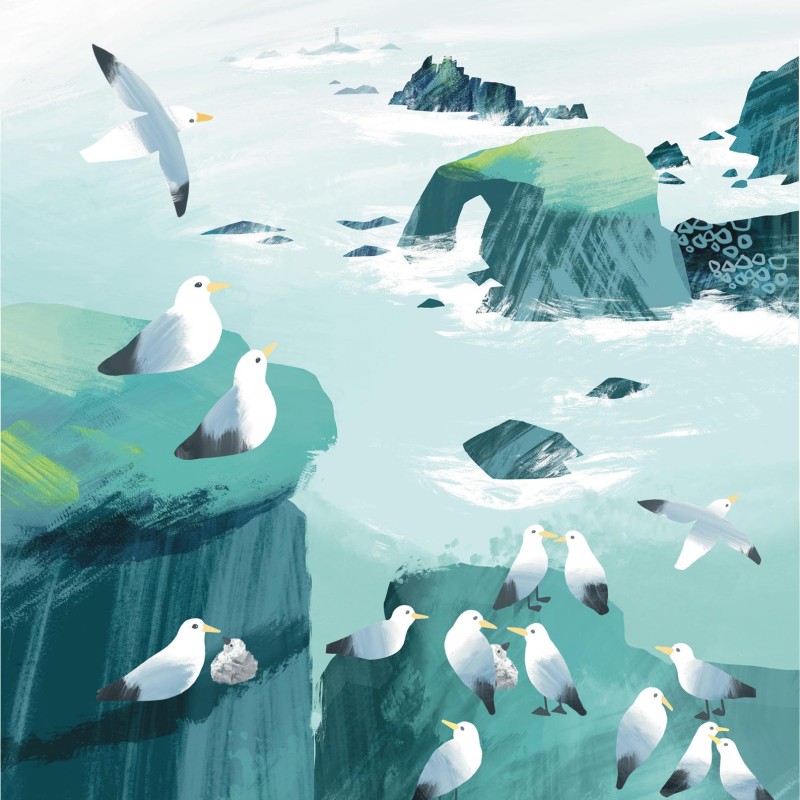
Kittiwakes, Gill Wild
With one of England’s longest coastlines, it’s not surprising that it also home to many islands. Three of note are
Lundy Island (12 miles off the coast in the Bristol Channel) is a National Trust reserve, a haven for grey seals, kittiwakes, razorbills and the migrating hoopoe bird. You’ll also find pygmy shrews, Soay sheep (originally from Scotland, they have curly horns) and semi-feral ponies (who aside from vet care and hoof-trimming) are left alone.
Burgh Island can be walked to at low tide, and has a sea tractor at high tide. Agatha Christie use to write her novels, when staying at the Art Deco hotel.
Grew Mew Stone is a rocky island, previously a prison but now a bird sanctuary. In 1744, ‘Hermit Samuel’ chose to be sentenced here for 7 years for a minor crime, rather than being sent to Australia.
He liked it so much, he married and raised three children, even offering boat trips from Wembury beach. But his dual life as a smuggler caught him out, and he had to leave the island. Apparently nobody has lived there since!
Secrets from a Devon Wood (a nature diary)
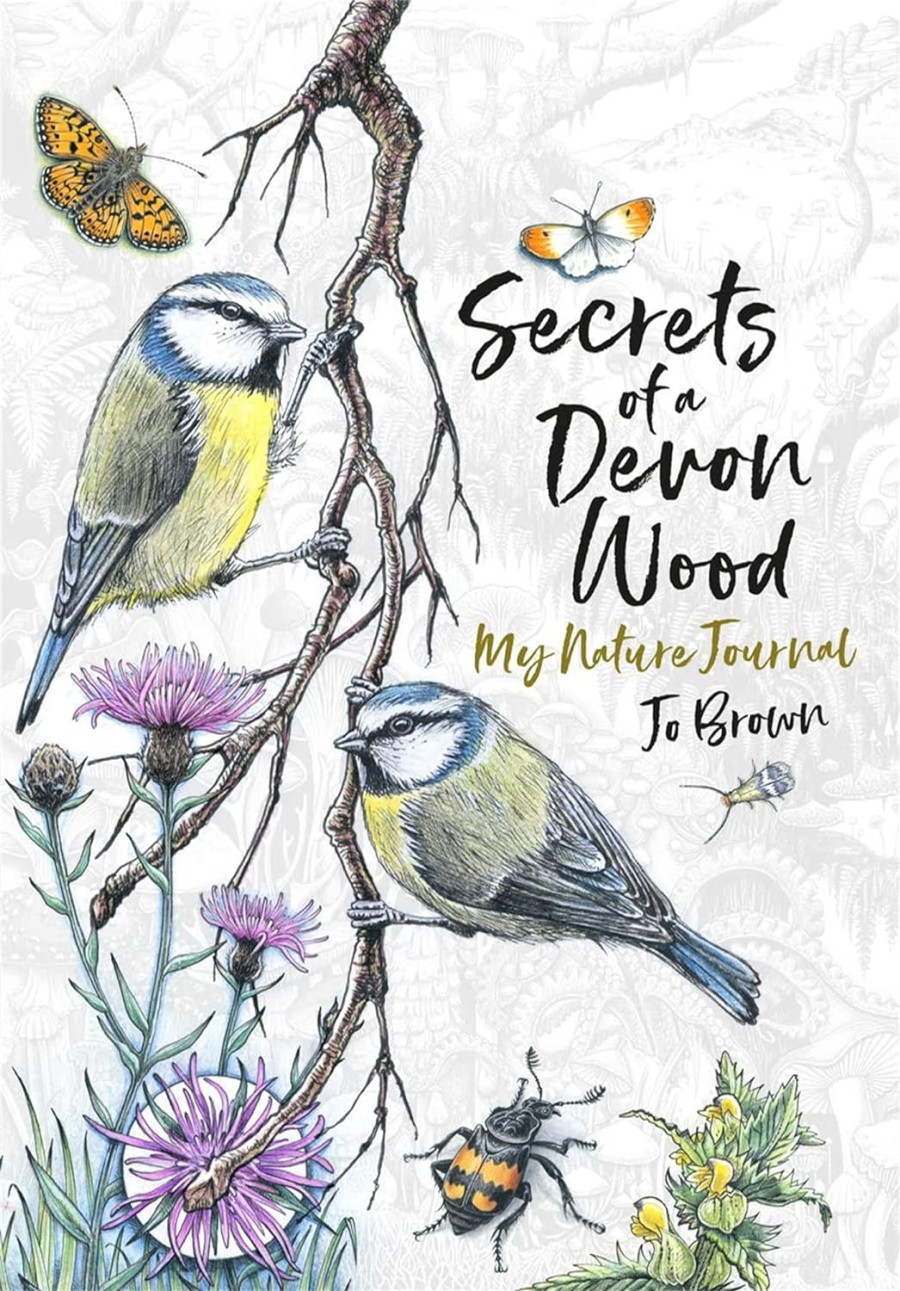
Secrets of a Devon Wood is a treat for the senses, with exact replicas of illustrations that the artist makes of discoveries she finds in the wood behind her Devon home.
Jo Brown began keeping her nature diary because ‘thing of such magnitude deserve respect and understanding, and deserve to be remembered’.
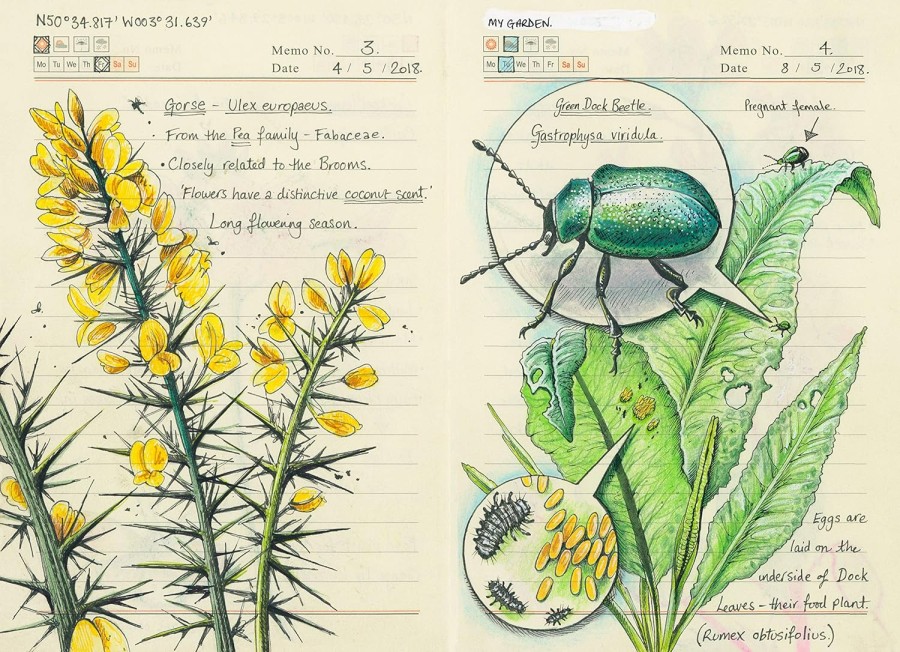
In enchanting and minute detail, she zooms in on a bog beacon mushroom, a buff-tailed bumblebee or a native bluebell. And notes facts on physiology and life history.
This book is a hymn to the beauty of the natural world, and a quiet call to arms for all of us to acknowledge and preserve it. A book that will stay with you.
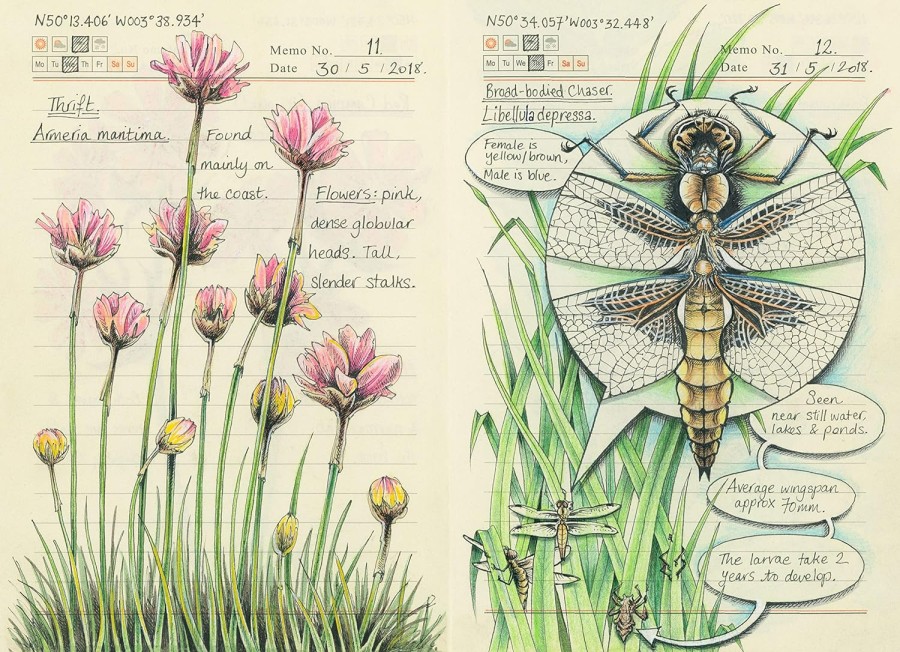
These beautifully illustrated notes are not polished essays, but real-time records to capture the first-hand wonder that the author feels when spotting beetles, fungi or ferns, in her own patch of woodland.
These drawings are straight from Jo’s personal sketchbook. Plants, feathers, and insects sit alongside handwritten notes. There is as much detail on a simple leaf, as a fox or owl.
The idea is to encourage anyone with a notebook to slow down, and look at the ground beneath their feet, to discover nature on the doorstep.
You’ll also learn a lot. Latin names beside common ones. And you’ll learn when certain species bloom. Learning about mosses to wildlife feels like a gentle chat, not a lecture.
Discover how one wood changes with the seasons, as Jo visits the same patch day after day, spotting small shifts that many people miss.
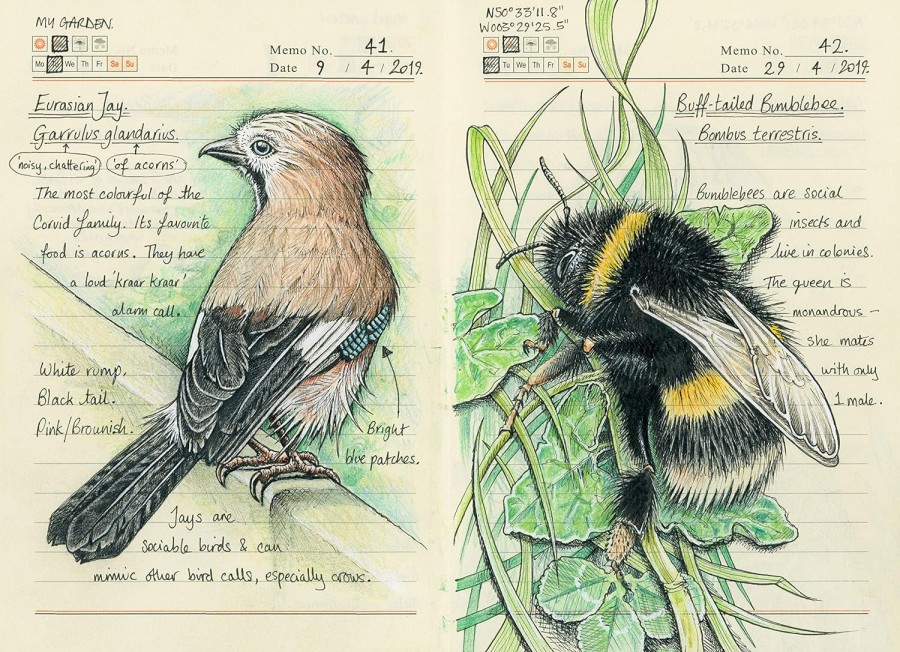
Brown’s work celebrates local nature rather than far-flung destinations. She shows Devon’s woodlands as places full of hidden drama and beauty.
This focus speaks to anyone in England who wants to connect with their own local patch, no matter how ordinary it seems at first glance. The result: more people feel encouraged to protect and appreciate neighbourhood wild spaces.
Readers of all ages see how to start their own journals—even without fancy art supplies or years of training.
Jo Brown is a professional illustrator from Devon, who graduated from Falmouth College of Arts with a BA Honours in Illustration. She works from her home studio to illustrate the natural world, working mainly with pen and ink.


